Epic concert films, the return of one of cinema’s longest-running franchises, explorations of the toll of modern war, a canine friendship for the ages, a vivid journey into space, the final film from a master director–these were just a few of the subjects and stories that this year’s documentary offerings brought us. With 2019 wrapping up, we’ve selected 20 features in the field that left us most impressed, so check out our list below and, in the comments, let us know your favorites.
63 Up (Michael Apted)
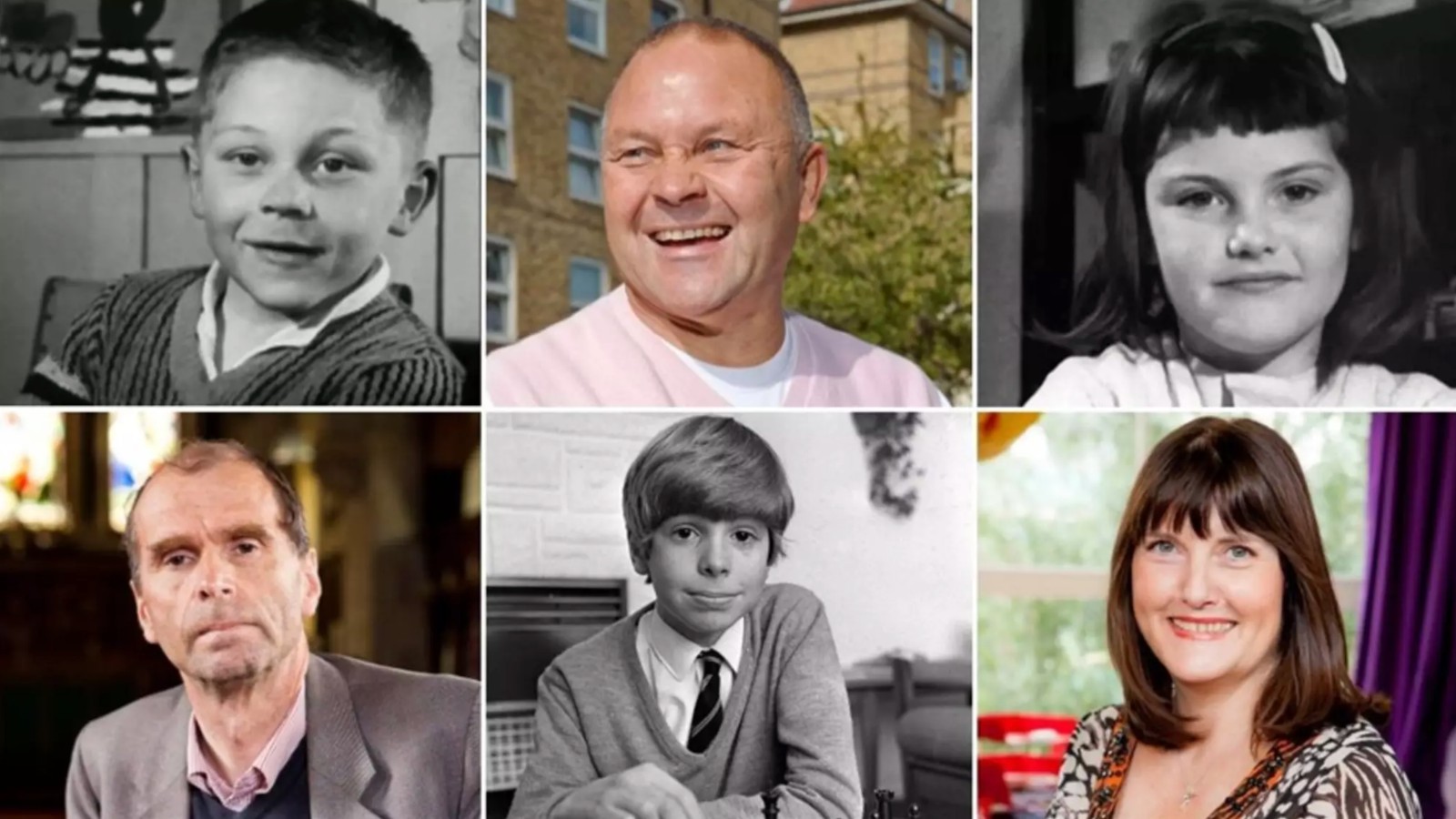
Revisiting the same subjects chosen from various walks of British life in 1964 at age seven, the latest installment, 63 Up, proves to be at times a moving sociological experiment with little surprise as it documents the lives of eleven ordinary British subjects it has followed for the past 56 years. Inspired by Francis Xavier’s quote, “Give me a child until he is seven and I will give you the man,” the experiment continued every seven years under the direction of Michael Apted since the second installment, who also has come of age as a filmmaker and interviewer in due time. – John F. (full review)
Amazing Grace (Sydney Pollack)
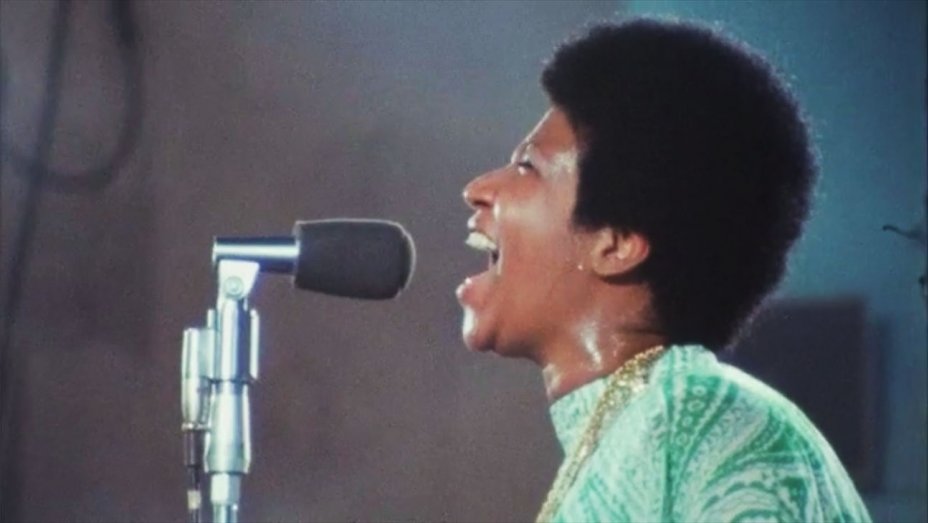
A time capsule that’s as fresh and powerful an experience as it must have been when recorded live in Watts in 1972, Amazing Grace is arguably one of the year’s most-anticipated films arriving after years of litigation and a fetal technical glitch that was resolved thanks to digital workflows. The film that exists, finished by producer Alan Elliot, bursts with intimacy and immediacy capturing a captivating and sublime performance by Aretha Franklin. In between the incredible artistry we discover and are introduced to several influences of Franklin’s including her father the minister and civil rights activist CL Franklin who provides a moving context for the performance along with commentary provided by Reverend James Cleveland. Amazing Grace is a rousing performance lensed with simple, raw, intimate filmmaking that’s unforgettable and nourishing for the soul. – John F.
América (Erick Stoll, Chase Whiteside)
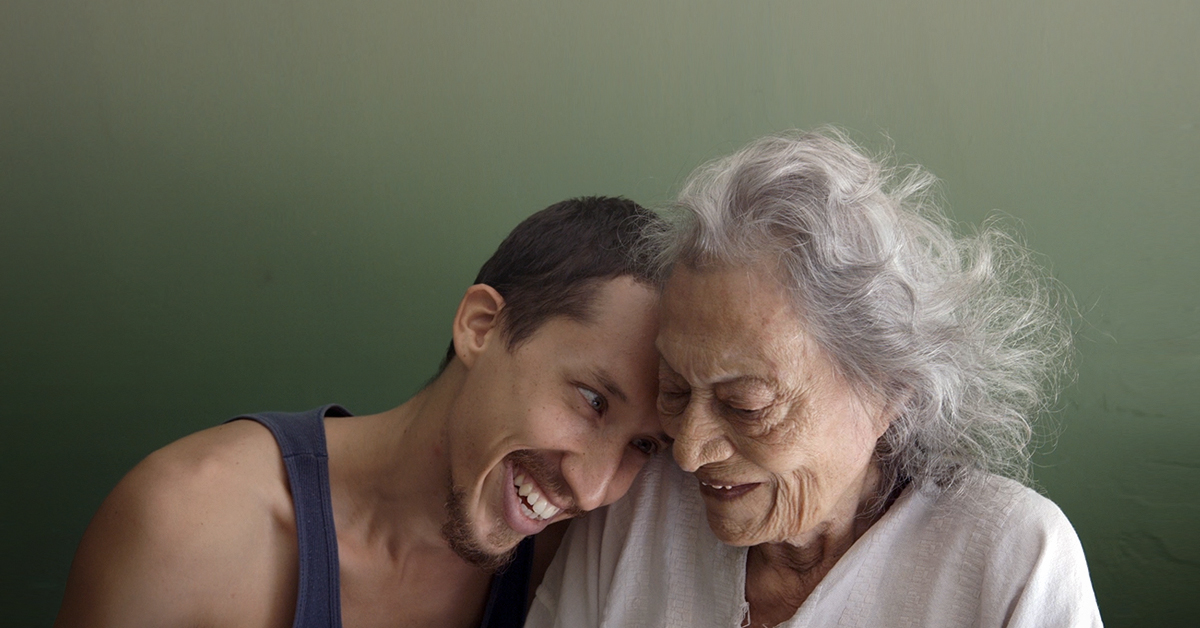
Erick Stoll and Chase Whiteside’s bittersweet music box of a film is enamored with its title character, a 93-year-old Mexican woman caught in an unwilling limbo. Her son has been sent to prison for failing to take care of her, elder neglect, leaving her unprepared adult grandsons to look after her, perhaps in the same way she looked after them when they were children. – Jose S. (full review)
American Factory (Steven Bognar and Julia Reichert)

When the Rust Belt was hit hard in the financial crisis of 2008, the blue-collar workers of Dayton, Ohio found a savior in a Chinese billionaire. Six years after the lifeblood that was a General Motors plant was shut down, the car-glass manufacturers Fuyao opened up their first American factory in the town, meaning thousands of new job opportunities. The promise of a steady income lifts the spirits of the workers, but an East vs. West clash of working methods quickly emerges, causing labor division, personal strife, and some unexpected camaraderie amongst the workforce. Directors Steven Bognar and Julia Reichert–who were Oscar-nominated for another look into the recession, The Last Truck: Closing of a GM Plant–capture this conflict in it all its complications, humor, and heartbreak in their thoroughly engrossing documentary American Factory. – Jordan R. (full review)
Apollo 11 (Todd Douglas Miller)
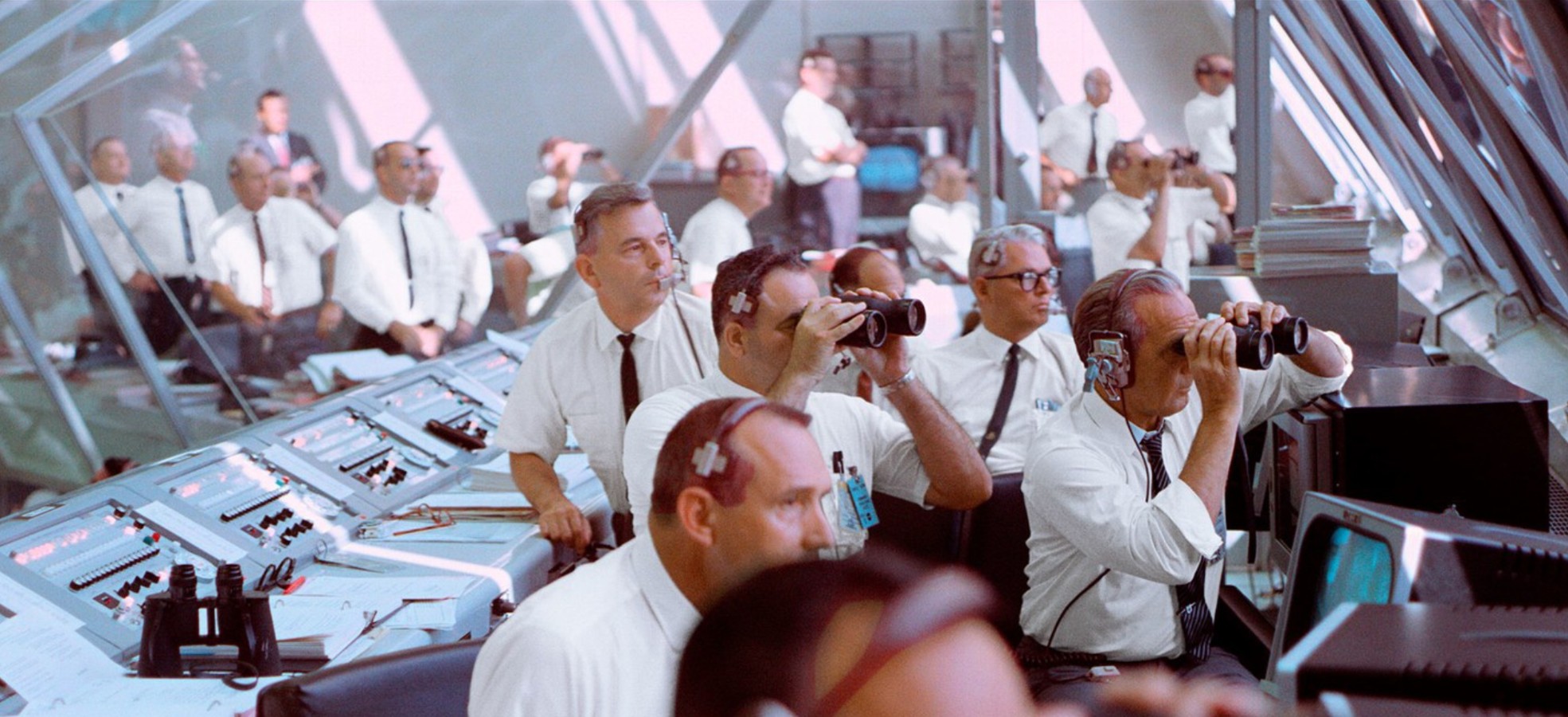
On July 16, 1969, Neil Armstrong, Michael Collins, and Buzz Aldrin embarked on a historic lunar odyssey, successfully landing on the moon and then returning to Earth. Free of talking heads, reenactments, and newly-recorded narration, the new documentary Apollo 11 takes viewers on this nine-day journey, constructed from astounding, never-before-seen 65mm Panavision, 35mm, and 16mm footage, as well as audio culled from over 18,000 hours of tapes. A perhaps initially unintended result when NASA handed over this remarkably pristine footage to director Todd Douglas Miller, his documentary is also a fascinating time capsule of this specific era. – Jordan R. (full review)
Black Mother (Khalik Allah)
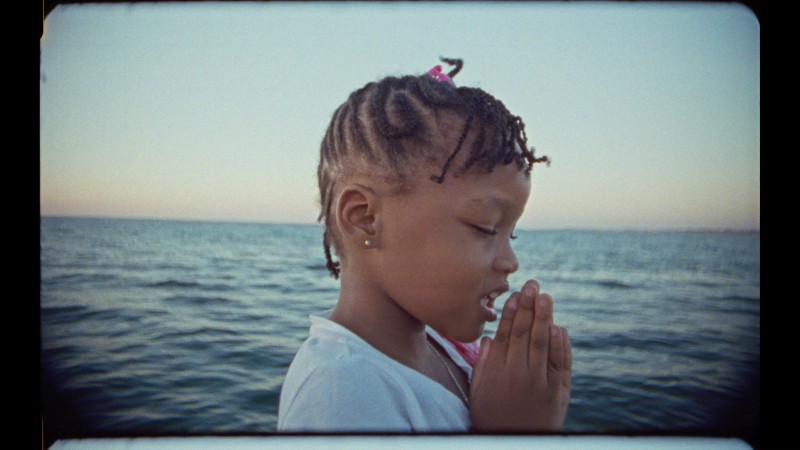
Comparisons of Black Mother to cinematic poetry are apt, but it’s harder to pinpoint than that, more aptly described in relation to sound or music–free-flowing jazz, fluidly connecting otherwise inconceivable strands of culture, politics, and history in Jamaica. The faces shown rarely match the soundscape and the audio and visual components of the film seem to operate parallel to each other. Words, in this case, fill in what traditional scoring tries but often fails to accomplish. – Jason O. (full review)
The Biggest Little Farm (John Chester)
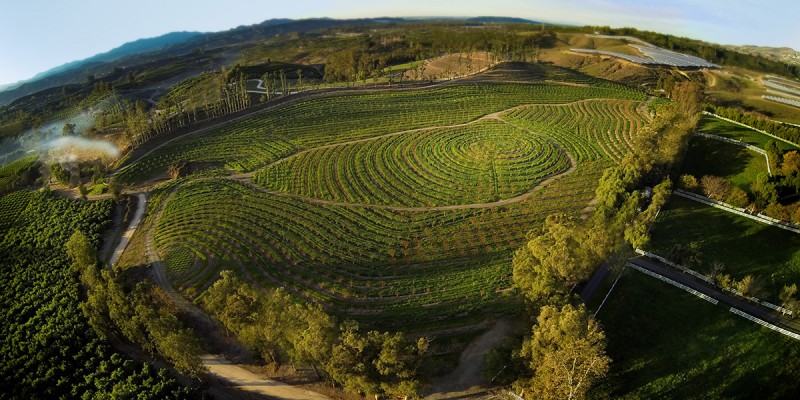
After getting evicted from their apartment in Los Angeles due to taking in a stray dog, filmmaker John Chester and food writer Molly Chester decide to try and cultivate a storybook farm in The Biggest Little Farm. The latest entry into the canon of films exploring food and ecosystems, like Aube Giroux’s Modified and Andrew Grace’s Eating Alabama, the documentary works as well as it does because of a reliance on its relatable subject and the director as its narrator. – John F. (full review)
Cold Case Hammarskjöld (Mads Brügger)
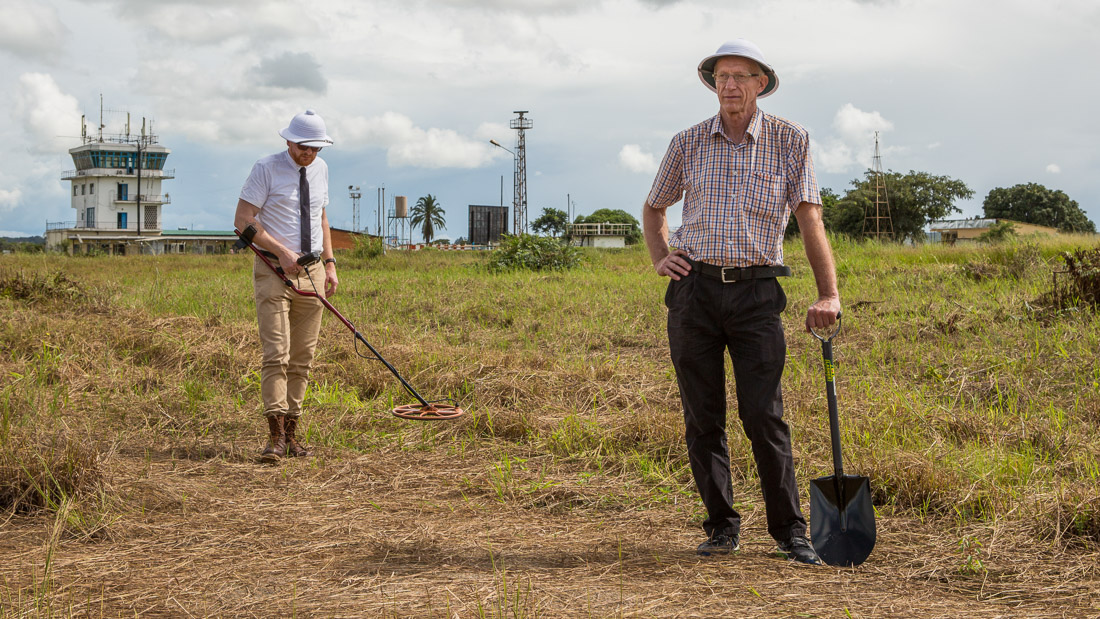
In 1961, Secretary-General of the United Nations Dag Hammarskjöld was killed in a plane crash in Africa under mysterious circumstances. Beginning as an investigation into his still-unsolved death, the trail that Mads Brügger follows in Cold Case Hammarskjöld is one that expands to implicate some of the world’s most powerful governments in unfathomably heinous crimes. Without revealing the specifics of the jaw-dropping revelations in this thoroughly engrossing documentary, if there’s any justice, what is brought to light will cause global attention and a demand for some kind of retribution. – Jordan R. (full review)
Combat Obscura (Miles Lagoze)

One of the very best documentaries we saw on the festival circuit last year was Combat Obscura, which premiered at True/False Film Festival. The film comes from Miles Lagoze, who took footage he shot as a Marine combat camera operator in Afghanistan, as well as videos taken by his comrades, and edited it all into a brisk, intense hour of war vignettes. Dan Schindel said in his review, “Combat Obscura sinks deeper into darkness as it progresses, as the utter pointlessness and futility of America’s presence in Afghanistan overwhelms the troops. While we are initially invited to empathize with the Marines, their jokey comradery gives way to vicious menace. There is no apparent mission, just a loop of injuries and reprisals against an amorphous outside threat.”
The Competition (Claire Simon)
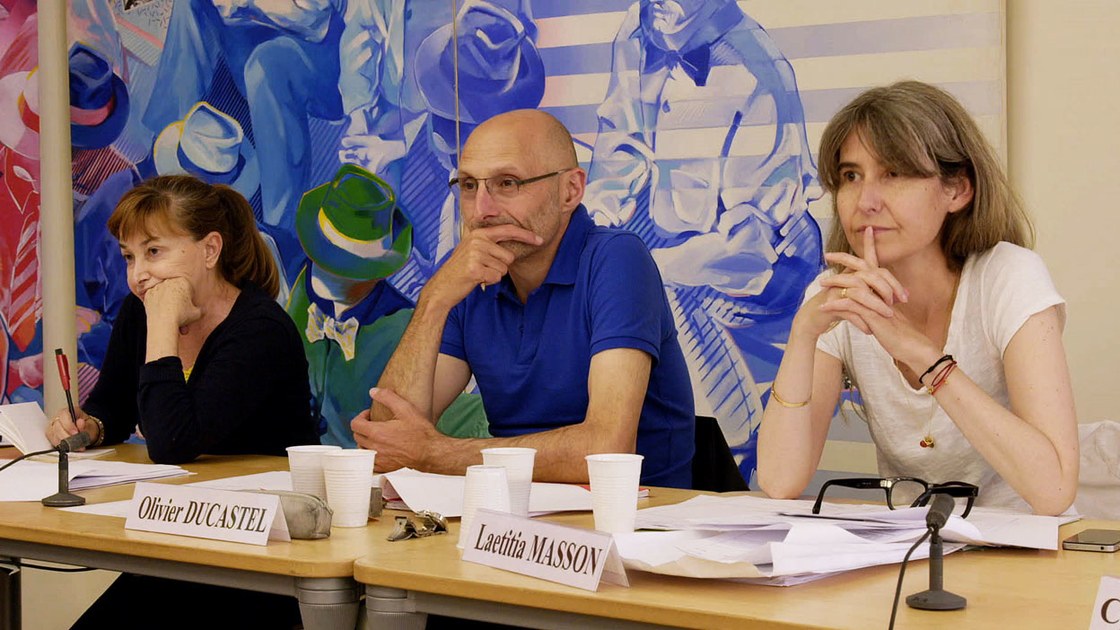
In the age-old divide (perhaps most evident in the United States) between film production and criticism, crossed by certain pioneers yet often left unbridged, it can sometimes be forgotten just how much the former is a process: not only in the actual procedure of filmmaking but also in everything that surrounds it. More than any art heretofore created, the process is, in all but the most independent or outsider context, explicitly and necessarily a collaborative process, defined by people in various roles that push and pull at each other, influencing each other’s craft in order to create a single film. An even less recognized aspect of this process is both subject and operative principle in Claire Simon’s The Competition, a documentary covering the 2014 application cycle at La Fémis, one of the most prestigious film schools in the world and whose famed alumni include Alain Resnais, Claire Denis, Céline Sciamma, and Arnaud Desplechin. – Ryan S. (full review)
For Sama (Waad Al-Kateab and Edward Watts)
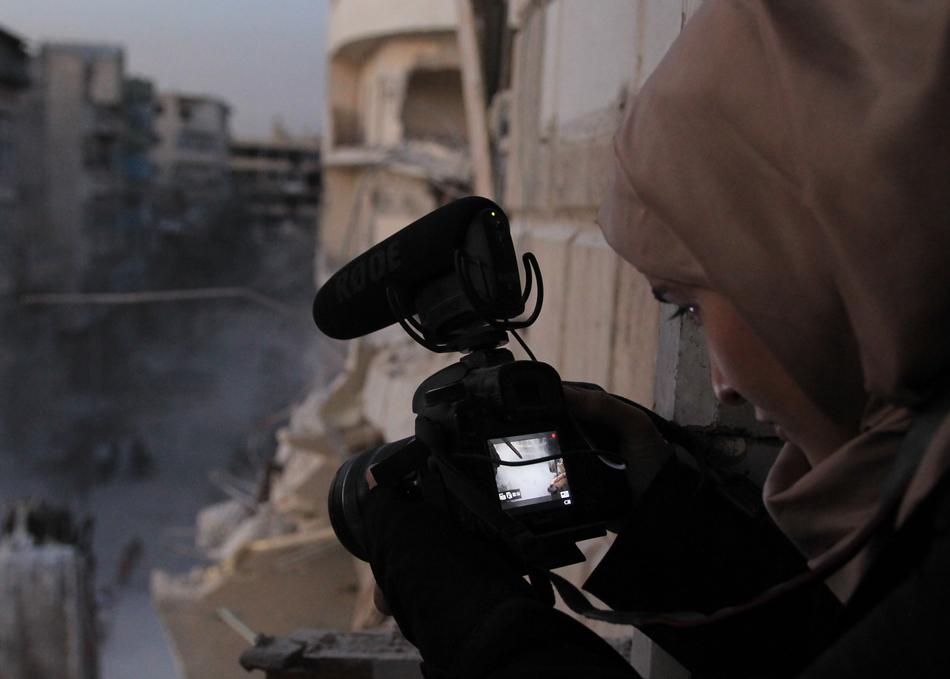
The top documentary winner at SXSW this year, Waad Al-Kateab and Edward Watts brought For Sama to Cannes and after a summer release, it’s now streaming for free on YouTube. John Fink said in his review, “Co-directed with Edward Watts, For Sama’s structure mirrors the chaos of the moments it captures, simultaneously connecting both her personal and the political past, present and future as she feels an affinity for her home while also lamenting the conditions they are living under. When she gives birth to her second child, away from her Syria she comments that she smells the city. For Sama is no doubt powerful in its immediacy and its unafraid to shy away from the gory details as families–including al-Kateab’s own–become casualties of war, her dreams differed… For Sama is a harrowing experience and certainly one of the most essential films of the year.”
Homecoming (Beyoncé)
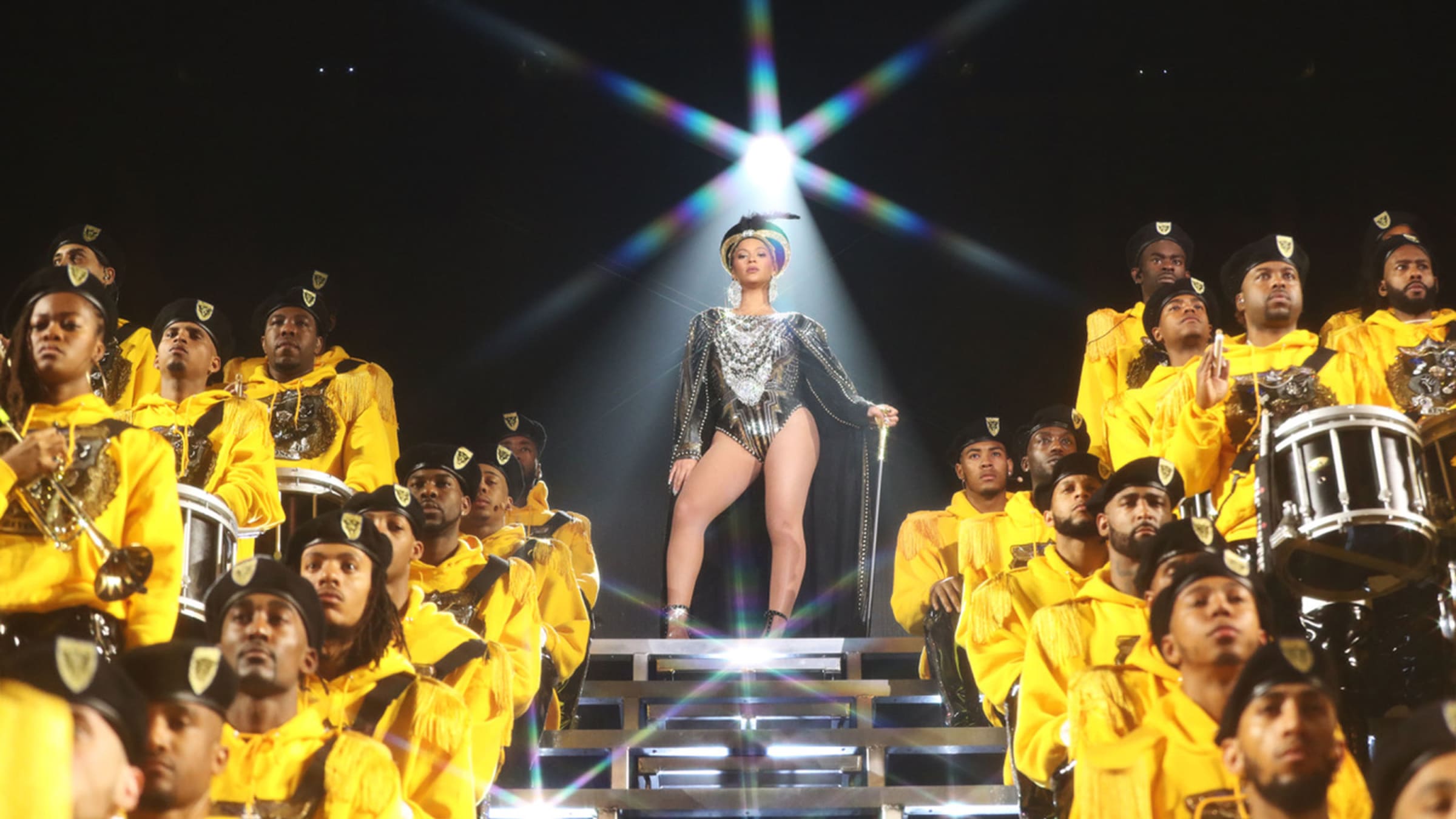
For a moment, Beyoncé’s two headlining sets at Coachella 2018 only existed as series of fan videos. Dubbed Beychella by the devoted who curated these videos into a coherent facsimile of the shows that were simultaneously instantly memed and passed around, they were events that alternately bottled up and justifiably deified one of the biggest and for some, most opaque pop stars in the world. Homecoming–Beyoncé’s lucid, self-directed Netflix documentary about the experience–is anything but homegrown, but it arrived like a personal letter all the same. It’s a spectacular high-quality rendering of the shows, calculated to every millisecond in camera movement and rhythm, but its lasting value is the coexistence of the onscreen fireworks and the human beings who are making it all happen. – Michael S.
Honeyland (Ljubomir Stefanov and Tamara Kotevska)
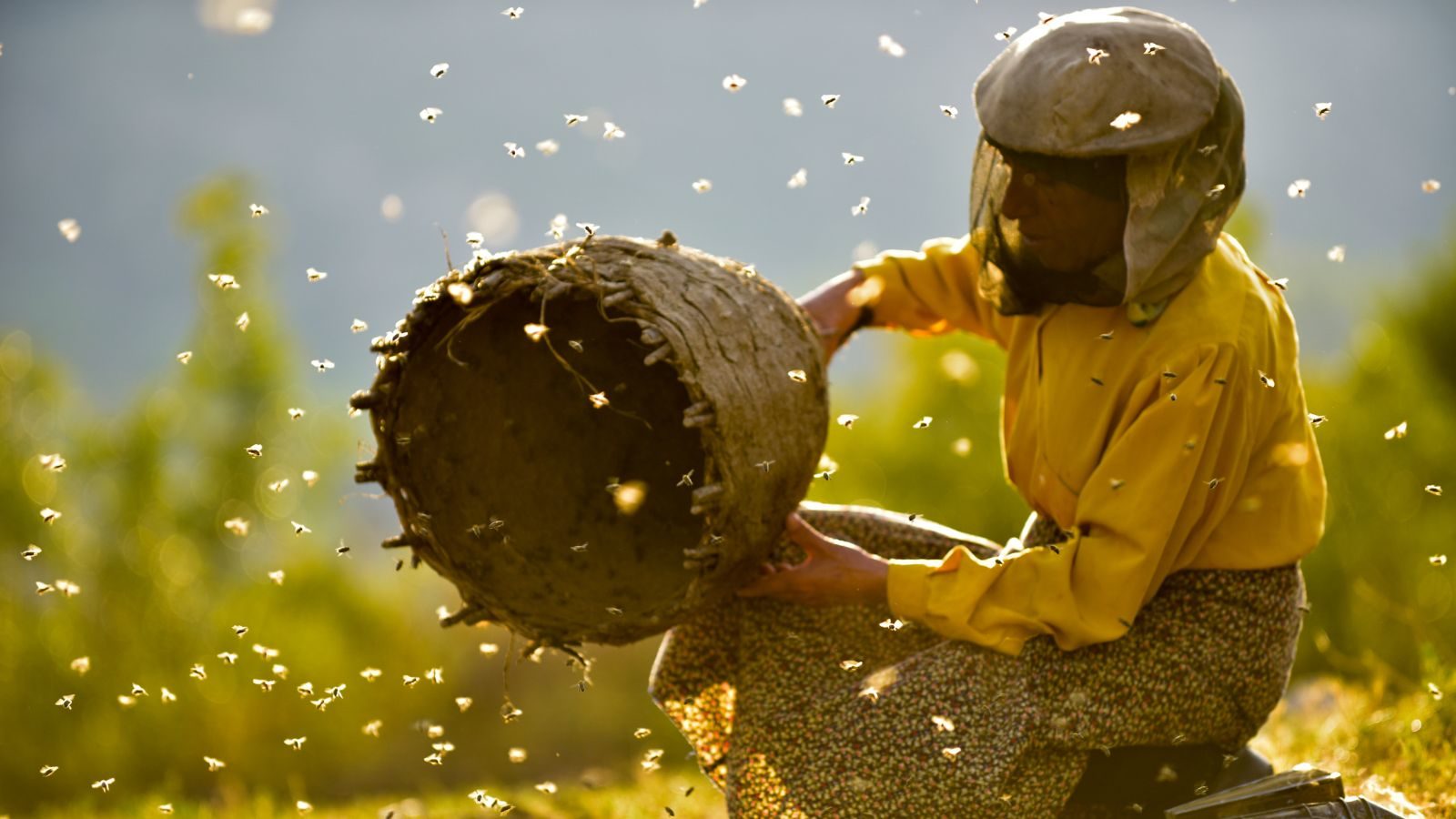
The need for fidelity characterizes Honeyland, a documentary co-directed by Ljubomir Stefanov and Tamara Kotevska (in their feature debut) which premiered at this year’s Sundance Film Festival and won the festival’s documentary World Cinema Grand Jury prize. For more or less the entirety of the film, its focus rests upon Hatidze, a Macedonian woman in her fifties who lives with her ailing mother in a deserted mountain village and makes both her living and passion out of harvesting honey. The various synopses describe her as the last traditional female beekeeper in Europe, but this is never laid out in text or voiceover, as the images and moments are presented without any overt intervention by the documentarians. – Ryan S. (full review)
The Hottest August (Brett Story)
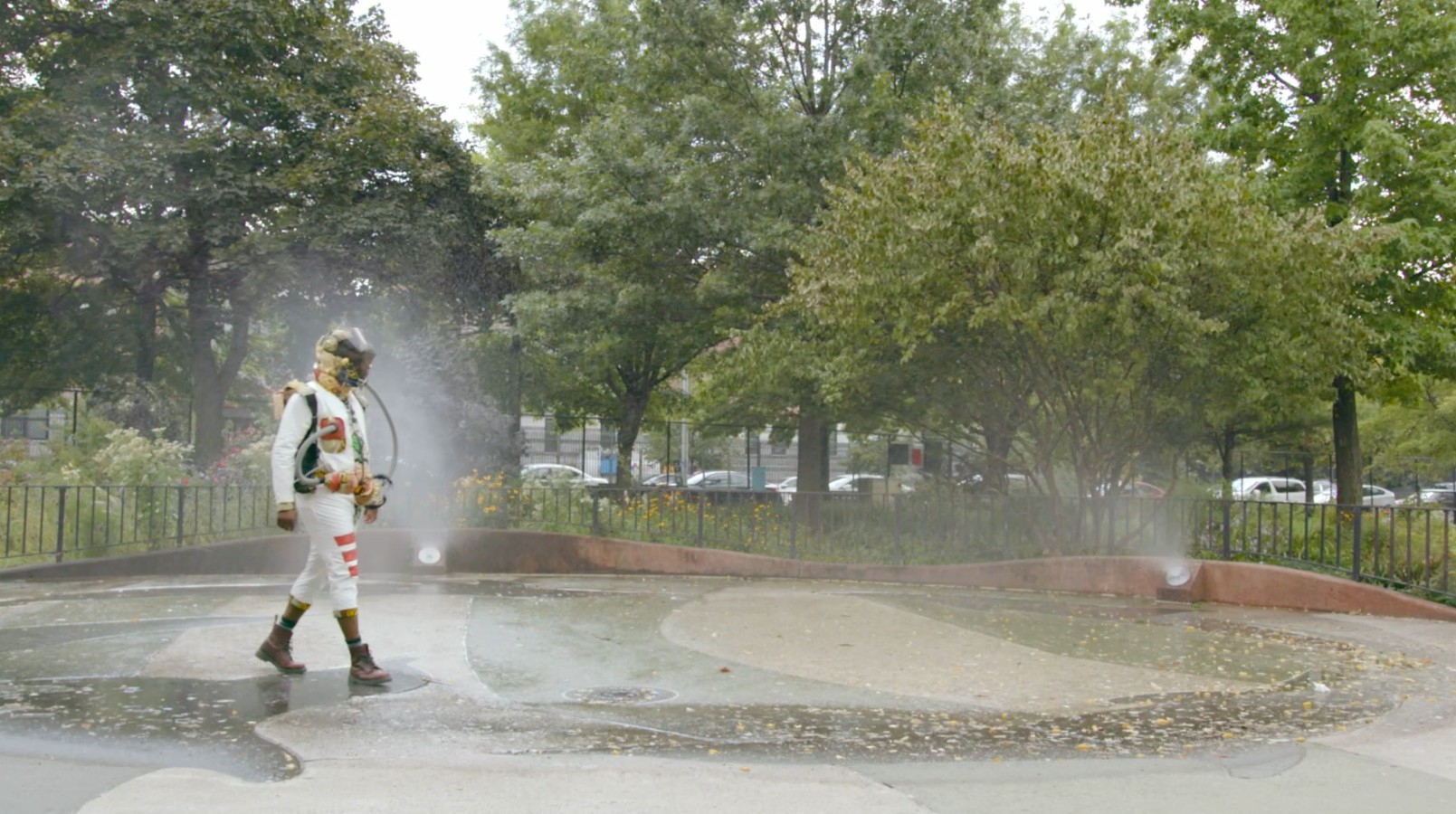
Where better than New York City to make a structuralist film? Cities are iterative, their street grids diagrams of theme and variation, and New York most of all—with its streets and avenues named for numbers and letters and states and cities and presidents and Revolutionary War generals spanning an archipelago, intersecting at a million little data points at which to measure class, race, culture, history, architecture and infrastructure. And time, too—from this human density emerge daily and seasonal rituals, a set of biorhythms, reliable as the earth’s, against which to mark gradual shifts and momentary fashions. Summer is for lounging on fire escapes, always, and, today, for Mister Softee. Yesterday it was shaved ice. Tomorrow, who knows? – Mark A. (full review)
Knock Down the House (Rachel Lears)
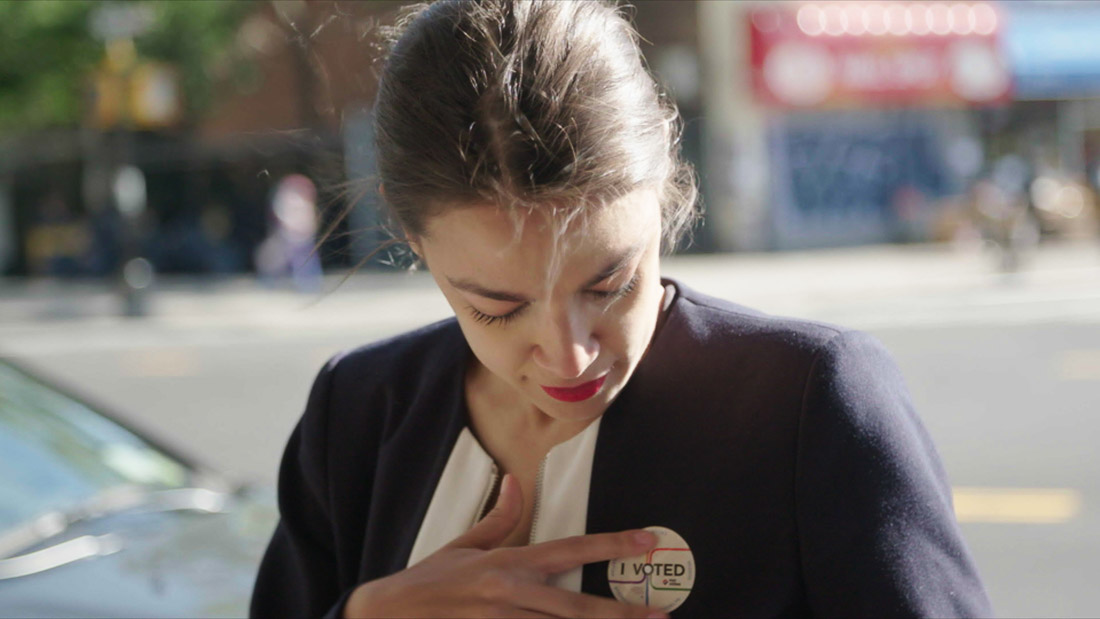
Rachel Lears’ Knock Down the House is a fun, emotionally powerful, inspiring look at the incredible wave of would-be politicians that sought, in 2018, to challenge status quo Democrats and enact meaningful change—all while refusing money from Wall Street fat cats and big business super PACs. Of the four women Lears follows until their respective primary election days, one of them needs no introduction: Alexandria Ocasio-Cortez, now an elected congresswoman for New York’s 14th congressional district, and quite possibly the most engaging, gregarious, endlessly charismatic public personality of our time, politician or otherwise. Her story, and subsequent victory over legacy Dem Joe Crowley, is a winning David vs. Goliath hero’s journey that never fails to make you feel hopeful for the future of the world. (I would say America, but when AOC is POTUS in six years, her impact will be global.) – Jake H. (full review)
Leaving Neverland (Dan Reed)
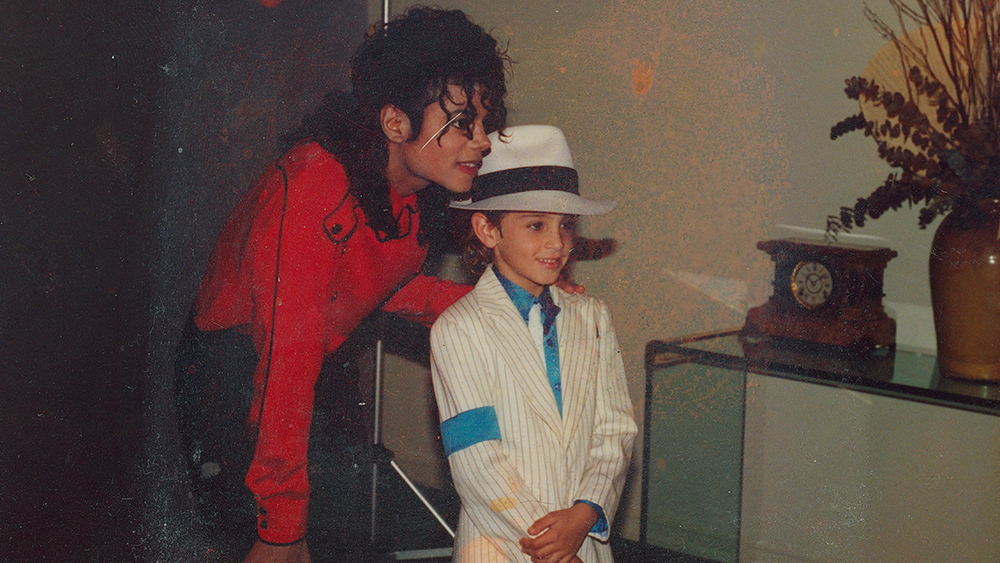
Dan Reed’s documentary catalyzed a divisive yet long-overdue reckoning with the legacy of Michael Jackson—painting a damning and disturbing portrait of the King of Pop through the eyes of his alleged sexual abuse victims, James Safechuck and Wade Robson. It’s an intimate exercise in empathy that reveals the emotional scars of abuse, and how the unthinkable can happen when everyone in an artist’s orbit gets swept up in the fog of fame. But most importantly it’s a crucial indictment of idol worship and its corrosive complicity; forcing us to examine the willful denials, compartmentalization, and rationalizations that allow us to look the other way in the face of inconvenient truths. – Demitra K.
Los Reyes (Bettina Perut and Iván Osnovikoff)

When it comes to dog movies, Hollywood usually piles on extraneous family-friendly melodrama to build up a narrative. A new documentary hailing for Chile, however, puts our stars–and pretty much only our stars–front and center. Los Reyes is a formally impressive, heartfelt look at canine best friends who more or less govern a skate park and those that cross their path. Told with a patient eye and little frills, one comes away with a raw, poignant feeling of camaraderie. – Jordan R.
One Child Nation ( Nanfu Wang and Lynn Zhang)

Chinese-American expat Nanfu Wang and Lynn Zhang’s sobering new documentary, simply titled One Child Nation, largely eschews the kind of abstract, “objective” historical and political analysis one would expect to find in, say, a CNN production. (Amazon Studios, the film’s distributor, is evidently unconcerned with provoking the ire of state-backed Chinese investors.) No “expert” talking heads rattle off statistics or theories or digestible factoids, and in fact the particular “how”s and “why”s of the one-child policy’s design and implementation are only broadly outlined through archival news clips and Wang’s expository narration. Instead, leveraging her proximity to the subject in ways few Western-born filmmakers could easily replicate, Wang–herself a product of the first one-child generation–places personal narrative front and center, starting with a visit to her rural hometown and spiraling out to produce a deeply personal snapshot of social engineering through the eyes of those predominantly working-class people most affected by it. – Eli F. (full review)
Rolling Thunder Revue: A Bob Dylan Story by Martin Scorsese

Martin Scorsese has had a long, fruitful partnership with rock ’n’ roll as muse, subject, and accompaniment, and one thing at which he’s uniquely skilled is drawing out the playfully antagonistic relationship between performer and audience. Though 2005’s No Direction Home offered an exhaustive, four-hour look at a sliver of Bob Dylan’s career, it felt almost too civil–absent the combative spirit that has made Dylan such a prophetic and transmuting figure. His latest attempt, Rolling Thunder Revue: A Bob Dylan Story–a remastered chronicle of the nearly 60-date tour that took place from 1975-1976–is as indebted to Dylan in form as content. A grandiose lark at least ten years in the making, its opening as a stirring Americana collage belies its later, consciously scattered direction. This is a portrayal of Dylan at his most unadulterated and prickly–a desolate genius who’s still almost always full of it. – Michael S. (full review)
Varda by Agnès (Agnès Varda)
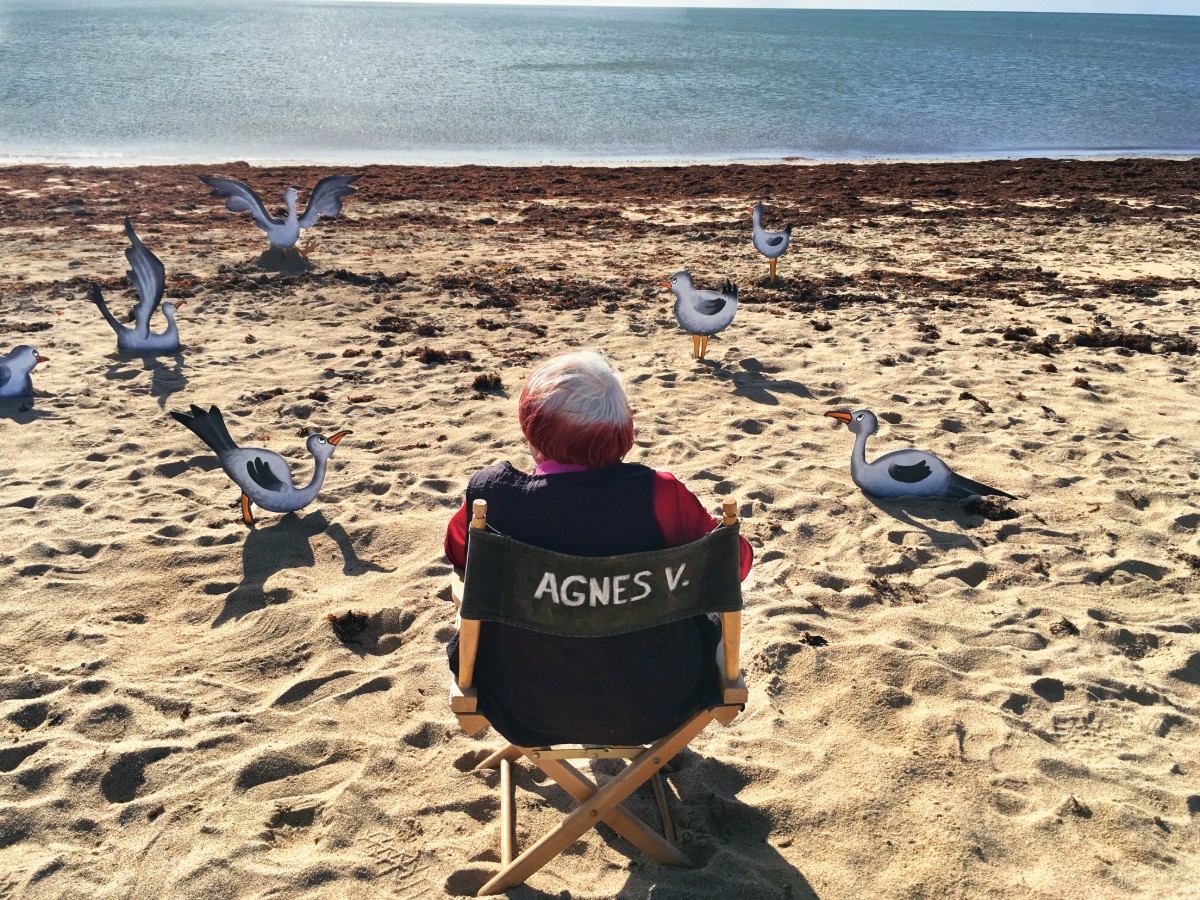
Life can seldom offer us neat endings. Cinema sometimes can, and there is something nicely fitting to the notion that Agnès Varda, the seventh art’s great celebrator of all things gleaned, would leave audiences–newcomers and devotees alike–with so much to take from her final film, as Varda par Agnès has ultimately proved to be. It is a swan song but not a melancholy tune, more a joyous celebratory coda to the director’s life and work, a film that feels purpose-built to dispel any notions of solemnity around her passing. – Rory O. (full review)
Honorable Mentions
Be Natural: The Untold Story of Alice Guy-Blaché
The Cave
Diego Maradona
The Edge of Democracy
Gay Chorus Deep South
Hail, Satan?
Love, Antosha
Midnight Family
Mike Wallace Is Here
The Raft
Western Stars
What You Gonna Do When the World’s on Fire?

